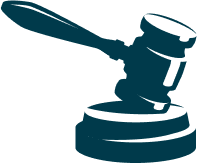To win a nursing home abuse or neglect case, strong and specific evidence is crucial to prove that the facility failed in its duty of care, causing harm to the resident. This evidence helps establish the extent of the injuries, the conditions that led to them, and who is responsible.
Common types of evidence in nursing home cases include:
- Facility inspection reports or violation citations
- Medical records and billing statements
- Photographs or video footage of injuries or unsafe conditions
- Witness statements from staff or other residents
Collecting and preserving this evidence early on can significantly strengthen a legal claim, but that’s what a nursing home abuse attorney can handle on your behalf to make the process as easy and stress-free as possible.
The Nursing Home Abuse Center works with lawyers who can help families in all 50 states and never charge any upfront costs or hourly fees. Get a free case review to see if one of our legal partners can gather the evidence needed to prove neglect or abuse and fight for the justice you deserve.
How to Prove Abuse in a Nursing Home
Proving abuse in a nursing home involves gathering clear and compelling evidence that shows the resident was harmed due to mistreatment or neglect by the facility or its staff.
Patterns of secrecy and inconsistent explanations from staff can raise red flags. These concerns become even more alarming when combined with documented injuries or unsafe living conditions.
Because these cases can be complex and emotionally difficult, it’s important to contact an experienced nursing home abuse lawyer who can investigate the situation, gather the right evidence, and pursue justice on your behalf.
By organizing and presenting this information clearly, a skilled attorney can demonstrate that the resident’s harm was the direct result of abuse or neglect, increasing the chances of holding the facility legally and financially accountable.
Types of Nursing Home Elder Abuse Proof
Nursing home abuse attorneys generally collect a range of evidence to show the resident was harmed, the staff or facility caused that harm, and the harm could’ve been prevented with proper care. This helps establish the injury, what caused it, and how it affected the resident’s health and well-being.
Types of evidence used to win nursing home cases generally include:
- Complaint or incident reports: Any internal reports filed with the facility or external complaints to agencies like Adult Protective Services (APS) can provide a paper trail showing a history of concerns.
- Expert opinions: Testimony from medical professionals, elder care specialists, or facility administrators can explain how the abuse occurred and if proper procedures were followed.
- Facility inspection reports: State and federal inspections may reveal violations, safety hazards, or past citations that support claims the facility failed to meet care standards.
- Medical records: Medical records may show injuries, untreated conditions, malnutrition, dehydration, or bedsores. A lawyer can work with experts to link these issues to poor care.
- Photographs and videos: Visual evidence of injuries, poor hygiene, or unsafe living conditions can support abuse claims. This may include family photos or surveillance footage.
- Resident behavior and condition changes: Sudden withdrawal, fear, weight loss, or confusion may signal abuse. Notes from family or caregivers tracking these changes can help support a claim.
- Staffing and employment records: These may reveal chronic understaffing, lack of proper training, or disciplinary issues that contributed to a pattern of neglect or abuse.
- Witness testimony: Witness statements from residents, visitors, or staff can offer firsthand accounts of abuse or unsafe conditions. Credible testimony can help build a strong case.
At no upfront cost, your legal team will work to understand what happened in your case and whether abuse or neglect played a role.
From there, your team can build the strongest nursing home abuse lawsuit possible and fight on your behalf to maximize your compensation.
How Difficult Is a Nursing Home Abuse Case to Win?
Nursing home abuse cases can be challenging to win because they often rely on proving what happened behind closed doors, where witnesses may be few and victims may have difficulty communicating due to age or medical conditions like dementia.
“Nursing home residents are particularly vulnerable to being subjected to abuse and neglect, due to their dependency on help from caregivers because of various illnesses.”
– National Library of Medicine
Facilities may also try to downplay or conceal signs of abuse, and complex medical histories can make it harder to show that injuries were caused by mistreatment rather than existing health conditions.
However, with strong evidence, a skilled nursing home neglect lawyer can build a solid case. Legal experience, thorough investigation, and early action can significantly improve the chances of a successful outcome.
Get Help Proving Nursing Home Abuse
At the Nursing Home Abuse Center, we work with a network of leading attorneys and law firms nationwide. If your loved one suffered abuse, we can connect you with top legal professionals near you.
The nursing home abuse lawyers in our network have:
- A policy of never charging upfront costs to file a claim
- Over 45 years of experience helping families
- Secured hundreds of millions of dollars in settlements
- The ability to help abuse victims in all 50 states
Get a free case review now to find out more about your legal rights. If you have a case, our team can handle every single part of the legal process for you.




